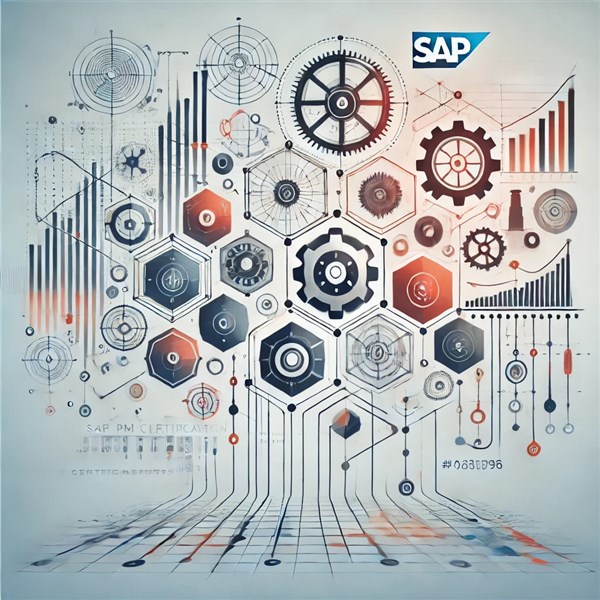
In today’s industrial landscape, efficient plant maintenance is crucial for organizations to reduce downtime, maintain productivity, and ensure long asset lifecycles. SAP Plant Maintenance (PM) Certification offers professionals an in-depth understanding of the tools and techniques required to streamline maintenance processes, optimize asset usage, and manage plant operations effectively. By certifying in SAP PM, you gain not only valuable technical skills but also a strategic advantage in managing and maintaining industrial equipment efficiently.
This article provides an overview of the top skills you’ll acquire from an SAP PM Certification course, including equipment management, preventive maintenance, work order processing, and reporting.
Skills You’ll Gain from an SAP PM Certification Course
1. Equipment and Asset Management
Understanding Equipment Master Data
SAP PM certification provides a strong foundation in managing equipment master data, which includes creating and maintaining asset records with detailed specifications such as model, serial numbers, and technical information. This data is crucial for organizing and categorizing equipment within an organization, enabling maintenance teams to manage assets efficiently.
Asset Lifecycle Management
With SAP PM, professionals learn to manage the full lifecycle of equipment, from acquisition and deployment to maintenance, upgrades, and eventual retirement. SAP PM certification covers how to track equipment performance and health over time, supporting decision-making around asset replacement or disposal. This skill is essential for industries that rely on heavy machinery, where each asset represents a significant investment.
Hierarchy and Location Structuring
Through SAP PM, users gain expertise in organizing equipment into logical hierarchies and assigning locations to facilitate efficient maintenance. You’ll learn to set up functional location structures to categorize equipment by area, making it easy for technicians to locate assets and track maintenance history effectively.
2. Preventive Maintenance (PM) and Predictive Maintenance
Developing Maintenance Plans
One of the core aspects of SAP PM is preventive maintenance, which involves creating schedules to keep equipment running optimally. SAP PM-certified professionals learn how to set up maintenance strategies and interval plans to ensure assets are regularly serviced and inspected. Preventive maintenance reduces the likelihood of unexpected failures, extends asset life, and saves costs in the long run.
Implementing Predictive Maintenance
Advanced SAP PM courses also touch on predictive maintenance, where data-driven insights predict when equipment is likely to fail. Although more advanced, predictive maintenance helps organizations prevent breakdowns before they occur by monitoring real-time performance data. SAP PM certification equips professionals with the knowledge to leverage tools like SAP’s predictive analytics to preemptively address equipment issues.
Maintaining Inspection Protocols
SAP PM includes functionalities for creating and managing inspection plans to monitor equipment health consistently. You’ll learn to set up checklists, calibrate schedules, and record inspection results, all of which contribute to identifying potential issues before they escalate into costly repairs.
3. Work Order Management and Processing
Creating and Managing Work Orders
One of the most critical skills gained from SAP PM certification is proficiency in managing work orders. In SAP PM, work orders are essential for scheduling, tracking, and documenting maintenance tasks. Certification courses provide insights into creating detailed work orders, including job instructions, required materials, labor costs, and scheduling.
Prioritization and Scheduling
Managing multiple maintenance requests can be challenging, especially in large facilities. SAP PM certification trains you to prioritize work orders based on urgency, availability of resources, and maintenance schedules. Effective prioritization ensures that critical assets are maintained first, reducing the risk of unscheduled downtime.
Closing and Recording Maintenance Tasks
Each work order processed in SAP PM captures essential data, from task completion to labor hours and materials used. You’ll learn how to record this information accurately, enabling effective documentation of maintenance activities for reporting, compliance, and future reference. Efficient work order processing is vital for audit trails and regulatory compliance, particularly in industries with strict operational standards.
4. Cost Management and Budgeting
Tracking Maintenance Costs
SAP PM certification also covers cost management skills related to plant maintenance. You’ll learn how to capture and analyze costs associated with maintenance activities, including labor, materials, and external services. This enables businesses to assess the true cost of maintaining their assets and optimize budgets effectively.
Allocating Budget to Maintenance Activities
Through SAP PM, you’ll gain the ability to allocate budget for different maintenance tasks, providing insights into resource utilization. SAP PM enables organizations to identify cost-effective solutions and reduce unnecessary expenses by analyzing maintenance data. Budgeting and cost management skills are valuable for managers who need to justify maintenance expenditures to stakeholders.
5. Reporting and Analytics
Creating Standard Reports
In SAP PM, reports are integral for monitoring maintenance performance and operational efficiency. SAP PM certification teaches you to generate detailed reports on various metrics, including equipment reliability, downtime, and maintenance costs. These reports help organizations assess the effectiveness of their maintenance strategies and make data-driven improvements.
KPI Tracking and Analysis
An SAP PM course will cover key performance indicators (KPIs) used to evaluate the effectiveness of maintenance practices. Learning how to monitor KPIs such as Mean Time Between Failures (MTBF), Mean Time to Repair (MTTR), and asset utilization allows certified professionals to track and enhance maintenance efficiency. These KPIs are particularly beneficial for benchmarking and optimizing maintenance processes.
Leveraging Dashboards and Data Visualization
SAP PM certification introduces data visualization techniques that make it easier for maintenance teams and managers to interpret complex data. With interactive dashboards, you can present maintenance statistics, highlight trends, and uncover actionable insights, which is invaluable for strategic decision-making and performance optimization.
6. Integration with Other SAP Modules
Cross-Module Collaboration
SAP PM does not operate in isolation; it integrates with other SAP modules, including SAP Materials Management (MM), SAP Finance (FI), and SAP Human Capital Management (HCM). SAP PM certification courses teach you how to collaborate across these modules, allowing for efficient resource allocation, inventory management, and financial tracking within maintenance workflows.
Inventory and Spare Parts Management
For effective maintenance, it’s crucial to have the right parts available at the right time. SAP PM certification helps professionals master inventory management skills, covering how to track spare parts and link them to specific work orders or maintenance plans. By integrating SAP MM with PM, maintenance teams can streamline spare parts procurement and avoid delays.
Human Resource Coordination
Many SAP PM tasks rely on skilled technicians. Integration with SAP HCM enables organizations to allocate manpower efficiently, matching maintenance tasks with available personnel. Understanding SAP HCM-PM integration is beneficial for scheduling, skill assessment, and workforce planning, especially in industries with complex maintenance requirements.
Conclusion
An SAP PM certification equips professionals with a robust skill set that combines technical expertise in asset management with strategic capabilities in cost management, preventive maintenance, and cross-departmental collaboration. Whether you’re an aspiring maintenance engineer, an IT professional in asset management, or a plant manager, SAP PM certification can open new career avenues and provide the expertise needed to ensure asset reliability and operational efficiency.
From hands-on experience with SAP’s work order system to predictive maintenance planning, SAP PM certification provides comprehensive training in essential skills that make you invaluable to organizations with significant investments in equipment and infrastructure. With these skills, you’ll be well-prepared to tackle the challenges of modern maintenance and contribute to your organization’s long-term success.
In conclusion, an SAP PM Certification Course is a valuable asset for any IT professional seeking to enhance their skills and career prospects. At Koenig Solutions, a leading IT training company, we provide top-notch certification courses in various technology fields. Our SAP PM Certification Course is designed to provide you with the skills and knowledge needed to excel in the digital world.







COMMENT